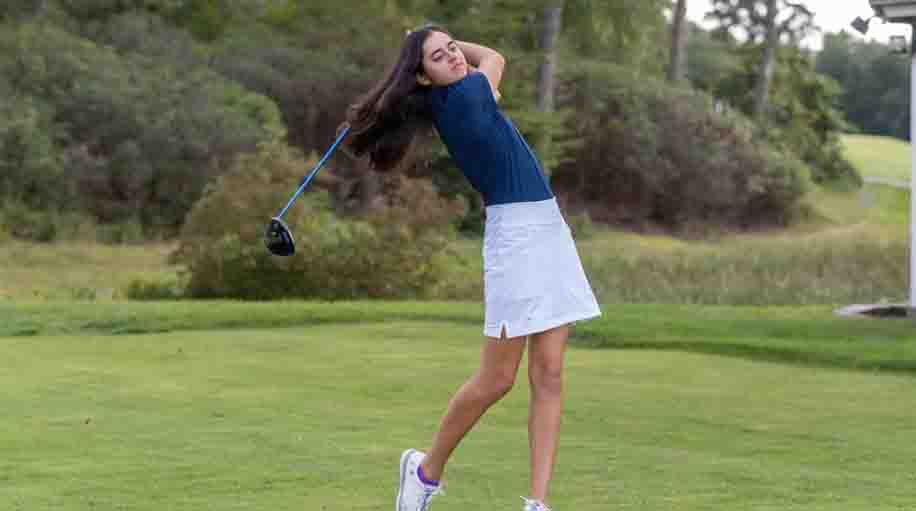
Yale Athletics
Over the past few decades, the expansion of sports analytics has altered how decisions are made in professional athletics. NFL teams are taking more risks on fourth down, NBA teams are shooting more three-pointers and the same is true for women’s golf at Yale.
In order to prepare for the team’s upcoming weekend tournament with Dartmouth and the rest of the season, coach Lauren Harling has implemented the use of a new tool: the statistical program AnovaGolf.
AnovaGolf is a software created by Thomas Petersson, a retired professional golfer who played for 10 years in the European, Asian, Latin American, Canadian, Chinese, Web.com and PGA Australasia tours. At its most basic, it collects two data points for each stroke: distance to the hole and the resulting lie. Players may also input additional information like resulting direction of the ball, break and slope on the greens, distance to the edge of the fairway when missing the fairway and more.
“In 2013, I had my best schedule and ranking in my career but it was clear to me that I had hit a performance plateau that I couldn’t break through,” Petersson told the News. “I came to the conclusion that I didn’t even have enough information about my own golf game in order to even have a productive conversation with my coaches about my improvement. There were no other platforms available at the time that could deliver the depth required to answer my detailed performance questions, so I decided to build it myself.”
Data points collected by the program are then parsed and analyzed to create over 700 different statistical metrics for users. Among those, two stand out for Yale’s players: personal and collegiate strokes gained. Personal strokes gained shows the players’ progress against themselves, while collegiate strokes gained compares individuals to the average college golfer.
The strokes gained metrics are divided up for the different shot types, which enables players to identify their strengths and weaknesses.
“Looking at numbers gives us a black and white picture of where our game is currently at and helps us easily track our progress,” captain Beryl Wang ’20 said.
Though recording the information for every shot can be tiresome work, rookie Kaitlyn Lee ’23 described the user interface as “very friendly and intuitive.” According to AnovaGolf’s website, a round can be added in as quickly as three minutes.
The AnovaGolf team, headed by Petersson, helps a diverse range of players like college golf teams, professionals, elite amateurs, national federations and academies.
The Bulldogs are hoping more information, when used correctly, will be a useful tool to improve as a team, and AnovaGolf does a comprehensive job at gathering a wide array of data points. The Elis will use this software throughout the season and this week as they look to improve on last season’s ninth-place finish at the Dartmouth Invitational.
Ami Gianchandani ’22, winner of last year’s Dartmouth Invitational and a prospective statistics and data science major, said that “analyzing and being able to actually see what went well and poorly in each round is extremely valuable. Golf is a game dominated by a lot of external factors, so any insight the stats can lend to our games is essential to get better.”
For their first competition, the Elis will be sending three first years — Lee, Ashley Au ’23 and Amy Zhang ’23 — along with two sophomores, Coco Chai ’22 and Gianchandani. Wang will be competing as an individual.
The first nine holes of Hanover Country Club, Dartmouth’s golf course, were constructed in 1899, making it the university’s oldest existing athletic facility.
Eugenio Garza Garcia | eugenio.garzagarcia@yale.edu







